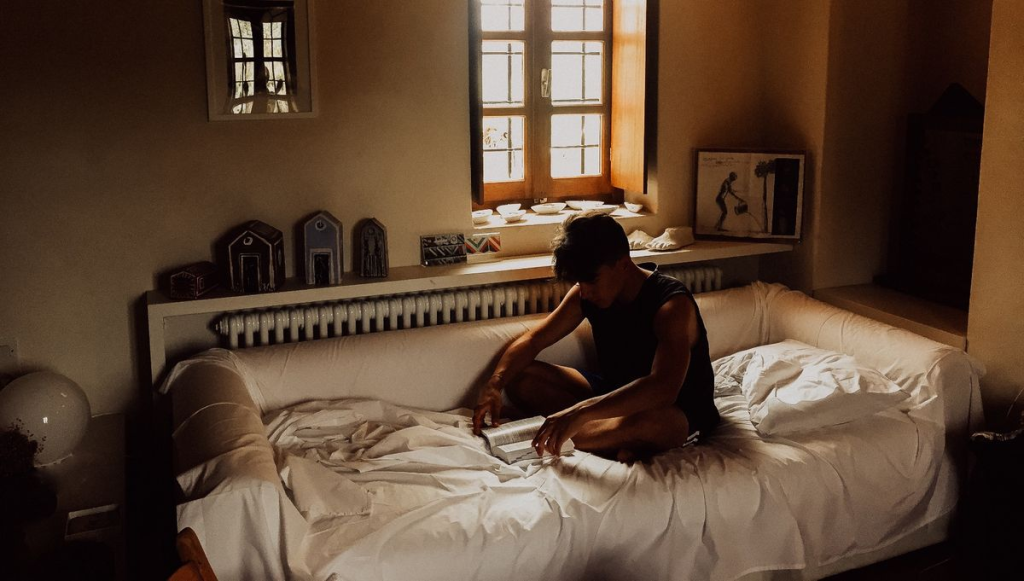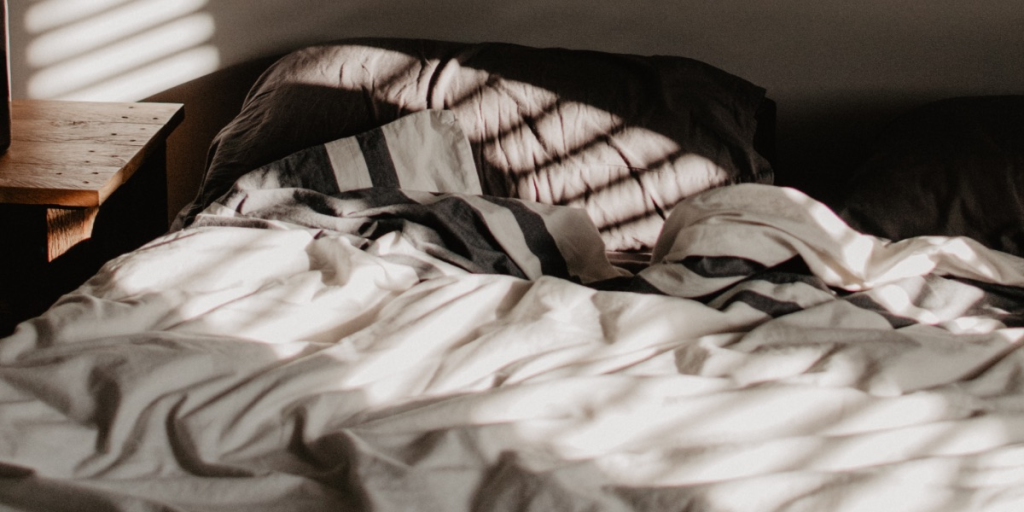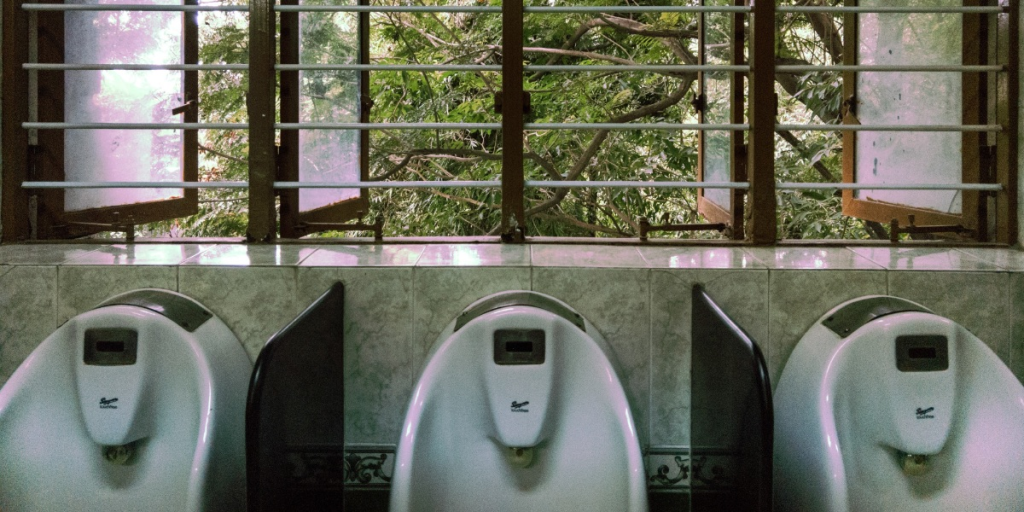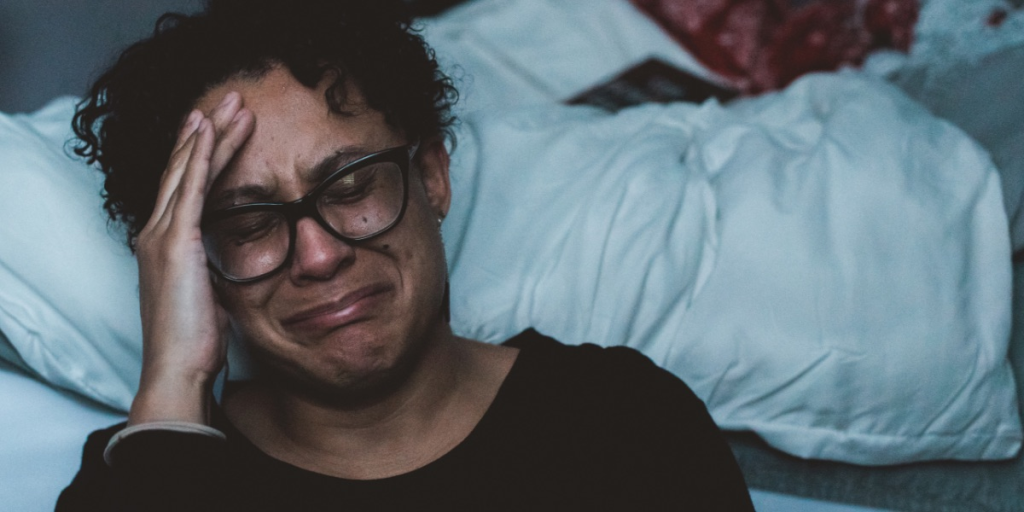
I was deep in sleep when my mum gently woke me up. Tears streamed down her face, and she looked bewildered. “Come to the living room, please. I don’t want to wake your brother.”
There’s never a perfect moment for someone to discover you’re LGBT. And there’s no completely wrong time, either. People are seldom ready for the truth. Often, they might already sense it but choose to maintain the facade of normalcy.
I felt a knot in my stomach. Was it something terrible? Had my dad passed away? Were my parents getting divorced? I sensed that something was amiss, and I felt like I was somehow at fault, though I had no idea why. As I swung my legs over the side of the bed, I felt heavy and disjointed, despite being just 16, skinny, and athletic.
This is the saddest story I’ve ever shared, and I hope it remains the saddest forever. To many, it might seem like my parents were monsters or just clueless. But they’re wonderful people who did everything they could; it just wasn’t enough.
When I entered the living room, my mum was already sitting on the couch, tears flowing. She handed me a piece of paper and asked, “What is this? I found it in your pocket.”
It was a love note—a silly, sweet, and somewhat risqué message from a classmate. He expressed his feelings for me, saying he loved me or wanted to be intimate. Honestly, I can’t recall the exact words, and it doesn’t matter. It was simply a teenage poem of affection.
My parents weren’t particularly religious or homophobic. In fact, they taught us to support the vulnerable and accept differences. They were champions of equality and humility. But we lived in a small village, and their views were shaped by that environment.
I held the note in my hands and read a few lines. “Oh, that’s the issue?” I said. My mum erupted, “WHO writes you these things? WHY does he think he has the right?” Her eyes were filled with anger, and her lips were tightly pressed together. She seemed like a character from a dramatic show, not my mum.
“Don’t worry,” I reassured her. “This guy just likes me. I’m gay, but I’m not into him.”
In my mind, it all made sense. Surely, my parents would accept me for who I am. It wasn’t like a teacher or neighbor was involved; it was just a classmate. I listened to Cher and Britney Spears all day long! My mum even bought me their CDs! They had to know I was gay and be okay with it!
But no. My mum reacted as if I had detonated a bomb in our home. Have you seen videos from Syria, where people mourn over the bodies of children? Those expressions of despair, suffocated by injustice and hopelessness—this was how my mum looked. But I was alive, doing well. Our house wasn’t destroyed, yet she sobbed as if it were.
“We will fight this together. Please don’t tell your dad. You’ll give him a heart attack. We’ll face this together.”
I was taken aback. “Mum, it’s me. I don’t have cancer. There’s nothing to fight.”

My dad had just returned home from work when we heard the door. At my mum’s command, I dashed to my bed while she headed for a shower. That was the longest I’ve ever spent in bed. I must have wished to disappear a hundred times. Sweat dripped off me, creating a pool that mirrored my shadow on the sheets. That night, I felt like I lost a part of myself. I knew my mum wasn’t there to keep secrets anymore, and I believed my dad figured everything out in about five minutes.
For my parents, gay people were just characters in hushed stories—societal failures that nobody really acknowledged. In their minds, we were things they thought about but never dared to voice. Unless, of course, it was their son. They seemed to think the only way to “straighten” me out was to scare the gay away. That’s what I suspected they were gearing up to do.
The next morning, my dad came to my room, woke me up, and said, “Morning, my boy. Can you come to the living room? Your mum and I want to talk to you.”
To this day, I’m unsure if he said “my boy” to show support or as a reminder of my identity. At the time, it felt more like a label than anything else. He kept using it, and it became increasingly difficult to hear. But looking back, I can see there might have been a positive intention behind it.
In the living room, they bombarded me with questions that felt too uncomfortable to discuss with my parents. I was 16, but I had been battling my own feelings for years. I realized I was the one I had been suppressing. They were nowhere near as prepared as I was for what lay ahead.
But who graduates from a parenting school? Who gets certified to be a good parent? No one, really. I hope my story offers some insights and highlights what not to do if you’re coming out or if someone you love is.
They asked if I had ever been with a girl. I replied that if I hadn’t, they’d question how I could know I was gay. But if I had, they’d likely say that just because I didn’t enjoy it doesn’t mean I wouldn’t with someone else.

They claimed that gay people lurked in public restrooms just to have sex. I told them that wasn’t true. Sure, gay people can be horny, but so can anyone else. They insisted that all gay people think about is sex, and I countered that I didn’t.
The questions escalated from there. They even suggested I could have anal sex with girls and lead a double life to start a family when it suited me.
At that moment, I realized it was just a phase for them—not for me. I was born gay and had been having gay dreams since I was five. I could easily remember the names of all the boys I liked while forgetting girls’ names in an instant. As a kid, I’d find myself staring at handsome boys and mimicking the jokes the girls made. I felt more at ease with girls than boys. Even if those things didn’t make someone gay, I knew I was undeniably gay, and that was okay. My friend had told me so, and the internet confirmed it.
My biggest fear was being kicked out of the house. I’d heard too many stories of parents doing just that. I lied, saying that if they wanted me gone, I’d leave and had somewhere to go. In reality, I had nowhere. I thought that might make them more protective rather than punitive. I probably made things worse.
At 16, I was fortunate and clever enough to realize that coming out meant I’d have to help raise my parents. I knew I could never cut them out of my life; I loved them too much. The only option was to try to change them into the people I wished they would be. And in some ways, I succeeded.
I knew I couldn’t let them ask more questions they’d regret later. The conversation was getting toxic. I was crying but pushing through; I just wanted this awkward moment to end. Then, I did something I still find hilarious.
I invited my lawyer! Well, she wasn’t officially a lawyer yet, but she was studying to be one. She was also one of the friends I trusted with my sexuality and all my antics. She arrived in no time, and I owe her a lot for that.
The discussion became easier with her there. My parents started to hear that some things shouldn’t have been said. They didn’t become allies right away, but the conversation shifted to safer ground.
It became clear that they were worried and wanted to protect me. They feared how the world would treat me and how my sexuality would impact my life. They were also grappling with the loss of their dreams and hopes—afraid they might never have grandchildren or that I wouldn’t experience the joys they had.
The environment around us was suffocatingly homophobic. But I was a 16-year-old with enough determination to shape my own world. I didn’t believe everything would be okay right away, but I knew this was my life, and I was ready to fight for it. I wasn’t going to live it by anyone else’s standards.

Things didn’t improve quickly. My phone was taken away, along with my internet access. They monitored my outings, and it was incredibly frustrating. My mother cried for weeks on end, refusing to answer calls or have friends and family over. She would sit in the living room, sobbing as if all hope was lost. “You killed me,” she would say, “My life is gone; I have no happiness left.”
Those words felt like burning knives piercing my skin. But deep down, I understood she needed to express this. I had spent countless nights crying away my own struggles in the years prior. How could I expect my mother to be more prepared? How could the people who brought me into this world not have their own expectations and fears? I didn’t blame her at all. I needed my time, and she needed hers.
As time went on, wounds began to heal, and understanding grew. Today, my parents are closer to being champions for the LGBTQ+ community than they ever were as homophobes. It took them a decade to fully embrace me, but it was worth the wait.
I’ll never forget what my dad told me nine years after I came out: “I’m not thrilled that you have a boyfriend now. I’m happy that you’re happy, but I had different hopes for you. Still, I’ve come to realize that your boyfriend will be like a new son to me.”
My Learnings
As Panti mentioned in her book “A Woman in the Making,” if you’re thinking about coming out to your parents, consider writing them a letter instead of doing it face-to-face. This way, you can avoid the storm of their initial reactions and see a calmer side of them.
If you’re young and suspect your parents might react poorly, it might be wise to hold off on coming out. Sometimes it’s better to wait until you’re financially and emotionally independent.
Believe in yourself. Take pride in who you are and what you bring to the table. Take a deep breath and find the strength to stand on your own as soon as you can.
A good friend can be invaluable. While the families we choose are important, putting some effort into the relationships with those who raised you can also be worthwhile.
Ideally, everyone would be an ally for the LGBTQ+ community by now. However, those who aren’t don’t always deserve our anger. We all learn and grow. I was homophobic once and am sure I still carry some prejudiced views—whether they’re homophobic, racist, sexist, or judgmental—that are tough to shake off.
We need laws to protect us, but more importantly, we need communication. Honest, open, and loving conversations with those who hold different opinions are essential. I went through difficult times, but I never shut my parents out. I kept talking to them and gradually helped open their minds.
In challenging situations, therapy can work wonders. It certainly helped my mom after just a few sessions.
Not every coming-out experience is the same. What worked for me might not work for you. Trust your instincts and carve out your own path.





